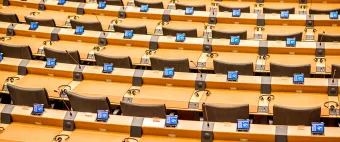Why Clarifying Ukaine’s Security Status Is in Russia’s Interest

Why Clarifying Ukaine’s Security Status Is in Russia’s Interest
The place that Russia should occupy in Europe has long been a contentious topic. Faced with a hostile Russia, many in the West who implicitly consider the EU system and liberal democracy to be synonymous with Europe itself assert that Russia is “leaving Europe”. By contrast, others take Russia’s military operation in Ukraine as evidence that Moscow still wants the West to accord it the privileges and status of a great power in the European security order.
Civilizational or normative definitions of Europe aside, one thing is undeniable: Russia remains the most populous and one of the most powerful countries in Europe.
Some institutions in the Euro-Atlantic area may serve to underwrite security against or without Russia, but there is no substitute for building security with Russia – at least to some extent.
As part of this equation, any new European security order will have to confront the task of stabilizing the lengthy border between Russia and NATO – a task which cannot be accomplished without first determining the security status of Ukraine. Given all the talk about security guarantees for Ukraine, one might think that this issue is purely of importance to the West. Yet clarifying Kiev’s place in the continental security order is very much in Russia’s interest as well.
Dr Zachary Paikin is Senior Researcher in the International Security Dialogue Department at the GCSP. He is also a part-time Research Fellow in the Grand Strategy program at the Quincy Institute for Responsible Statecraft in Washington, DC, as well as Senior Fellow at the Institute for Peace & Diplomacy (IPD), a Canadian international affairs think tank. From 2021 to 2023, he was a Researcher in EU Foreign Policy at the Centre for European Policy Studies (CEPS) in Brussels.
Paikin serves as chair of the Younger Generation Leaders Network on Euro-Atlantic Security (YGLN) and is a collaborator with the Network for Strategic Analysis, funded by the Canadian Department of National Defence. He was previously a member of the Cooperative Security Initiative, a project to strengthen East-West cooperation supported by the OSCE secretariat, and was a speechwriter at Canada’s Permanent Mission to the United Nations in New York as part of the Canadian government’s bid for a UN Security Council seat in 2020. He was named a GLOBSEC Young Leader in 2019.
Paikin holds a PhD in International Relations from the University of Kent in Canterbury, UK. His research, which focuses on Russian foreign policy, European security, great power relations and international order, has been published by leading think tanks including the European Council on Foreign Relations (ECFR), the Royal United Services Institute (RUSI), LSE IDEAS, the Foundation for Strategic Research (FRS), the Italian Institute for International Political Studies (ISPI), and the Wilson Center’s Kennan Institute. His most recent book, entitled Rebooting Global International Society: Change, Contestation and Resilience (edited with Trine Flockhart), was published by Palgrave Macmillan in 2022.
Disclaimer: This publication was originally published on the Valdai Discussion Club website. The views, information and opinions expressed in this publication are the author’s/authors’ own and do not necessarily reflect those of the GCSP or the members of its Foundation Council. The GCSP is not responsible for the accuracy of the information.
